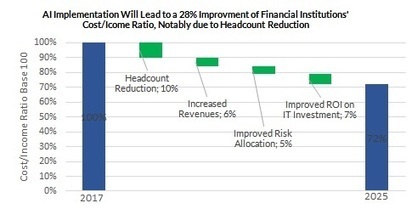Most dermatologists were outperformed by the convolutional neural networks (CNN). Irrespective of any physicians’ experience, they may benefit from assistance by a CNN’s image classification.
Research and publish the best content.
Get Started for FREE
Sign up with Facebook Sign up with X
I don't have a Facebook or a X account
Already have an account: Login

 Your new post is loading... Your new post is loading...
 Your new post is loading... Your new post is loading...
|
|











Itt egy következő példa arra, hogy a gyakorlott szakember munkájával mi történik, amikor belép a robot is. Az előző példában a profi jogászokat verte egy konkrét ügytípus elemzésében, egy ember ért csak el ugyanolyan jó eredményt, mint a gép:
https://www.scoop.it/t/collaboration-by-pal-kerekfy/p/4095218061/2018/03/08/artificial-intelligence-more-accurate-than-lawyers-for-reviewing-contracts-new-study-reveals
A mai példában melanómát kellett felismerni, és a gép jobban teljesített, mint a szakorvosok többsége.
Ez – egyelőre – nem jelenti azt, hogy ki lehet rúgni az összes profit, de előbb-utóbb csökken majd a számuk, ha a gép olcsóbb lesz és legalább ugyanolyan jó lesz.
Beszámoló ebben a cikkben:
https://academic.oup.com/annonc/advance-article-abstract/doi/10.1093/annonc/mdy166/5004443?redirectedFrom=fulltext
Érdekes jövő! A legnagyobb kérdés: Ha alig lesz profi szakember, ki fogja ellenőrizni a gépet?
Mindkét vizsgálat alaposan ellenőrzött, egyetemi, szakmai körben zajlott – nem ismeretlen “brit tudósok” eredménye.
#melanoma #dermatologist #oncology #deeplearning #MI #artificialintelligence #machinelearning